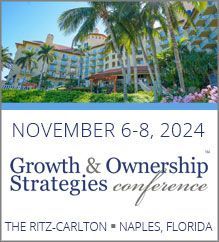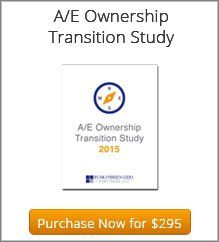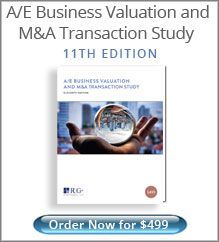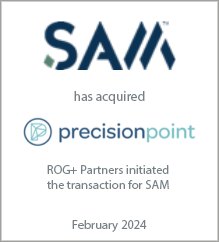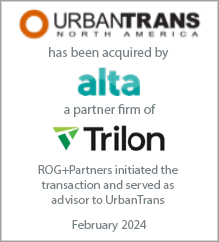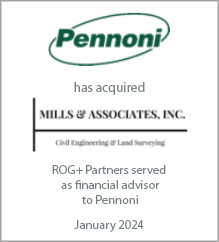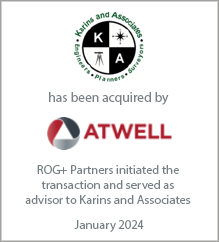With nearly fifteen years of corporate financial advisory experience, Jonathan Voelkel has worked with hundreds of engineering, architecture, and environmental consulting firms across the U.S. and abroad, in all facets of mergers & acquisitions, valuation, ownership transition planning, equity incentive compensation, and ESOP advisory. Jonathan received his Bachelor of Arts (BA) degree in Economics from Johns Hopkins University.
Is the Future of Your Firm in the Hands of Millennials?
Is the Future of Your Firm in the Hands of Millennials?
April 27, 2017
One of the largest ownership transition issues A/E firm owners currently face is the same one they faced years ago: finding a way to influence younger employees and warm them to the idea of equity ownership. Luckily, now there is much more robust qualitative (and quantitative) data available from which we can draw stronger inferences as to what many Millennials’ thoughts are on long-term employment with a single employer. And we increasingly see that this piece of the equation, once understood, leads to a much simpler path to effecting a successful internal ownership.
According to the Pew Research Center, the number of employed Millennials exceeded that of employed Generation Xers for the first time in 2015 – only one year after surpassing the number of Baby Boomers in the labor force. This rapid emergence as the dominant demographic of the employed U.S. population continues to force A/E firm leaders, owners, and managers to learn and adapt to previously unfamiliar needs, preferences, and styles when it comes to working. Because this fully-burgeoned generation of employee now comprises the majority of the workforce, their voices shouldn’t be disregarded or even taken lightly.
Millennial-related key takeaways of what I’ve learned from the past five years’ worth of due diligence, analyses, and plan implementation surrounding internal ownership transfers are these: Millennials value personal growth; interactive relationships with their superiors and coworkers alike; and democratic systems that allow them a voice. Some owners, unfortunately, struggle to understand work preferences and philosophies of their youngest employees, which leads to communication issues between the two groups, which in turn can create rifts that ultimately foster and promote the idea that changing jobs is the solution for Millennials. As a result, some not-too-positive stereotypes of these younger employees persist, especially in firms where there’s a noticeable belief that they and their peers are entitled.
How can this cycle be broken? By addressing what it is that these valuable employees are seeking. Many of the comments I hear from young non-owners include wanting to: grow and nurture the specific skills they desire (be they technical or not); fashion the customary boss/owner-employee relationship into more of a coach/mentor-student dynamic; and gain a larger voice to make their participation in the firm more meaningful than just what they’re able to produce as technical employees. Of course, these goals are usually mentioned in the same breath as “producing good work” and “keeping clients happy,” but fewer young employees view these goals as peripheral.
The A/E firm owners who do make the effort to learn what Millennials want, including what skills they want to improve on as well as the kind of work they want to be doing, have stronger relationships with their younger employees. A stronger relationship leads to a more motivated, incentivized employee who is inclined to stick around longer and work with owners in pursuing their vision of growth. Many young engineers and architects regularly express that being a part of their firms’ wider visions and growth plans would help eliminate their leeriness in terms of ownership.
Millennials seek meaning in what they do, perhaps more so than generations past, and there is a strong correlation between devoting efforts to keep them happily engaged and their longevity within a company. The old narrative relegated most young workers to positions of little input and choice, while the owners’ expectation was that remaining loyal to one firm and rising through the ranks was a given. While this isn’t quite the case anymore, there is certainly no dearth of young employees who desire to become invested, financially and emotionally in their companies. However, for Millennials to evolve and meet their growth goals, firms must provide them with opportunities to work in close collaboration with their managers. Including them in the vision of the company will reap benefits for both current and future owners.
According to the Pew Research Center, the number of employed Millennials exceeded that of employed Generation Xers for the first time in 2015 – only one year after surpassing the number of Baby Boomers in the labor force. This rapid emergence as the dominant demographic of the employed U.S. population continues to force A/E firm leaders, owners, and managers to learn and adapt to previously unfamiliar needs, preferences, and styles when it comes to working. Because this fully-burgeoned generation of employee now comprises the majority of the workforce, their voices shouldn’t be disregarded or even taken lightly.
Millennial-related key takeaways of what I’ve learned from the past five years’ worth of due diligence, analyses, and plan implementation surrounding internal ownership transfers are these: Millennials value personal growth; interactive relationships with their superiors and coworkers alike; and democratic systems that allow them a voice. Some owners, unfortunately, struggle to understand work preferences and philosophies of their youngest employees, which leads to communication issues between the two groups, which in turn can create rifts that ultimately foster and promote the idea that changing jobs is the solution for Millennials. As a result, some not-too-positive stereotypes of these younger employees persist, especially in firms where there’s a noticeable belief that they and their peers are entitled.
How can this cycle be broken? By addressing what it is that these valuable employees are seeking. Many of the comments I hear from young non-owners include wanting to: grow and nurture the specific skills they desire (be they technical or not); fashion the customary boss/owner-employee relationship into more of a coach/mentor-student dynamic; and gain a larger voice to make their participation in the firm more meaningful than just what they’re able to produce as technical employees. Of course, these goals are usually mentioned in the same breath as “producing good work” and “keeping clients happy,” but fewer young employees view these goals as peripheral.
The A/E firm owners who do make the effort to learn what Millennials want, including what skills they want to improve on as well as the kind of work they want to be doing, have stronger relationships with their younger employees. A stronger relationship leads to a more motivated, incentivized employee who is inclined to stick around longer and work with owners in pursuing their vision of growth. Many young engineers and architects regularly express that being a part of their firms’ wider visions and growth plans would help eliminate their leeriness in terms of ownership.
Millennials seek meaning in what they do, perhaps more so than generations past, and there is a strong correlation between devoting efforts to keep them happily engaged and their longevity within a company. The old narrative relegated most young workers to positions of little input and choice, while the owners’ expectation was that remaining loyal to one firm and rising through the ranks was a given. While this isn’t quite the case anymore, there is certainly no dearth of young employees who desire to become invested, financially and emotionally in their companies. However, for Millennials to evolve and meet their growth goals, firms must provide them with opportunities to work in close collaboration with their managers. Including them in the vision of the company will reap benefits for both current and future owners.
Latest Perspective
Perfecting the A/E Exit Strategy – Five Key Factors
An enormous A/E generation that kicked off their careers in the 1980s and subsequently started firms or became owners in the 1990s ...
© 2024
Rusk O'Brien Gido + Partners, LLC
Financial Experts for Architects, Engineers, and Environmental Consulting Firms


